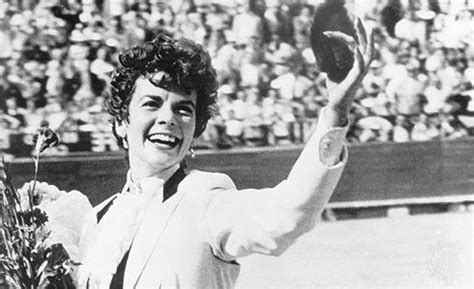A Quote by Kathryn Minshew
There's a dance happening on both sides of the table. Individuals are giving their personal and career values a lot more weight when it comes to finding a company that aligns with both. At the same time, companies are becoming a lot more transparent about their core values as an organization and the types of people they want to attract.
Related Quotes
The best CEOs in our research display tremendous ambition for their company combined with the stoic will to do whatever it takes, no matter how brutal (within the bounds of the company's core values), to make the company great. Yet at the same time they display a remarkable humility about themselves, ascribing much of their own success to luck, discipline and preparation rather than personal genius.
I am like all other atheists only in that I do not believe there are any gods. Beyond that, I may differ dramatically in my values and beliefs from any other atheist. On both sides of the political spectrum, one can find the neo-conservative Objectivists and the ultra-liberal Communists, both of whom hate each other. These two factions take up nearly opposite sets of values, yet both are comprised of unabashed atheists.
Preserve the core, and let the rest flux. In their wonderful bestseller Built to Last, authors James Collins and Jerry Porras make a convincing argument that long-lived companies are able to thrive 50 years or more by retaining a very small heart of unchanging values, and then stimulating progress in everything else. At times "everything" includes changing the business the company operates in, migrating, say, from mining to insurance. Outside the core of values, nothing should be exempt from flux. Nothing.
Coming from a YouTube perspective, a lot of times you kind of limit yourself and think, 'Oh, artists from the real world wouldn't want to work with someone who's made their career on YouTube.' But more and more, I'm realizing that artists from both sides are learning that we can benefit from each other.
The values of science and the values of democracy are concordant, in many cases indistinguishable. Science and democracy began - in their civilized incarnations - in the same time and place, Greece in the seventh and sixth centuries B.C. . . . Science thrives on, indeed requires, the free exchange of ideas; its values are antithetical to secrecy. Science holds to no special vantage points or privileged positions. Both science and democracy encourage unconventional opinions and vigorous debate. Both demand adequate reason, coherent argument, rigorous standards of evidence and honesty.
The song writing is different because with this stuff, I write it on my own and with Hot Water, we're more of a collective and I love both sides of that. Honestly, it's two different animals but I love and respect them both and feel really honored to be blessed with people who care about it and come out and support both sides of it.
For corporations to be bedfellows with the arts is good business for both. The architecture that houses a company is a more visible statement than the president's in the annual report. Ditto interiors, particularly of offices and sometimes, dramatically, in plants. For solvent businesses, support of community cultural undertakings in music, drama, dance creates great goodwill. Also, the existence of such activities is often important to the executives and their families that companies want to keep or attract to keep.
Economists are almost unanimous in conceding that the land tax has no adverse side effects. ...Landowners ought to look at both sides of the coin. Applying a tax to land values also means removing other taxes. This would so improve the efficiency of a city that land values would go up more than the increase in taxes on land.



































